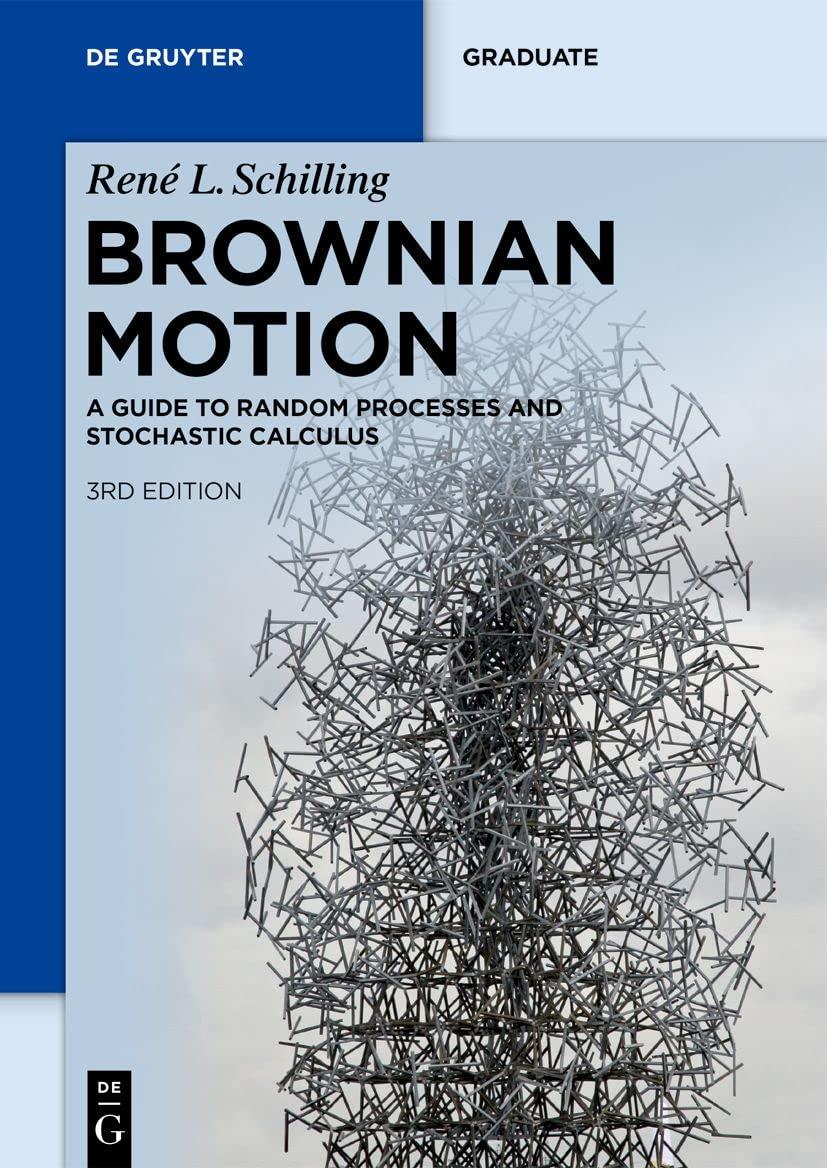Let ((B(t))_{t geqslant 0}) be a (mathrm{BM}^{d}) and let (Z) be a bounded (mathscr{F}_{infty}^{B}) measurable random variable.
Question:
Let \((B(t))_{t \geqslant 0}\) be a \(\mathrm{BM}^{d}\) and let \(Z\) be a bounded \(\mathscr{F}_{\infty}^{B}\) measurable random variable. Then \(x \mapsto \mathbb{E}^{x} Z\) is in \(\mathcal{B}_{b}\left(\mathbb{R}^{d}ight)\).
\(\mathscr{F}_{\infty}^{B}\) is generated by sets of the form \(G:=\bigcap_{j=1}^{n}\left\{B\left(t_{j}ight) \in A_{j}ight\}\). Then, \(\mathbb{E}^{x} \mathbb{1}_{G} \in \mathcal{B}_{b}\left(\mathbb{R}^{d}ight)\). Consider the family \(\Sigma:=\left\{A: \mathbb{E}^{x} \mathbb{1}_{A} \in \mathcal{B}_{b}\left(\mathbb{R}^{d}ight)ight\}\); this is a Dynkin system containing all sets \(G\), hence \(\mathscr{F}_{\infty}^{B}\).
Fantastic news! We've Found the answer you've been seeking!
Step by Step Answer:
Related Book For 

Brownian Motion A Guide To Random Processes And Stochastic Calculus De Gruyter Textbook
ISBN: 9783110741254
3rd Edition
Authors: René L. Schilling, Björn Böttcher
Question Posted:





